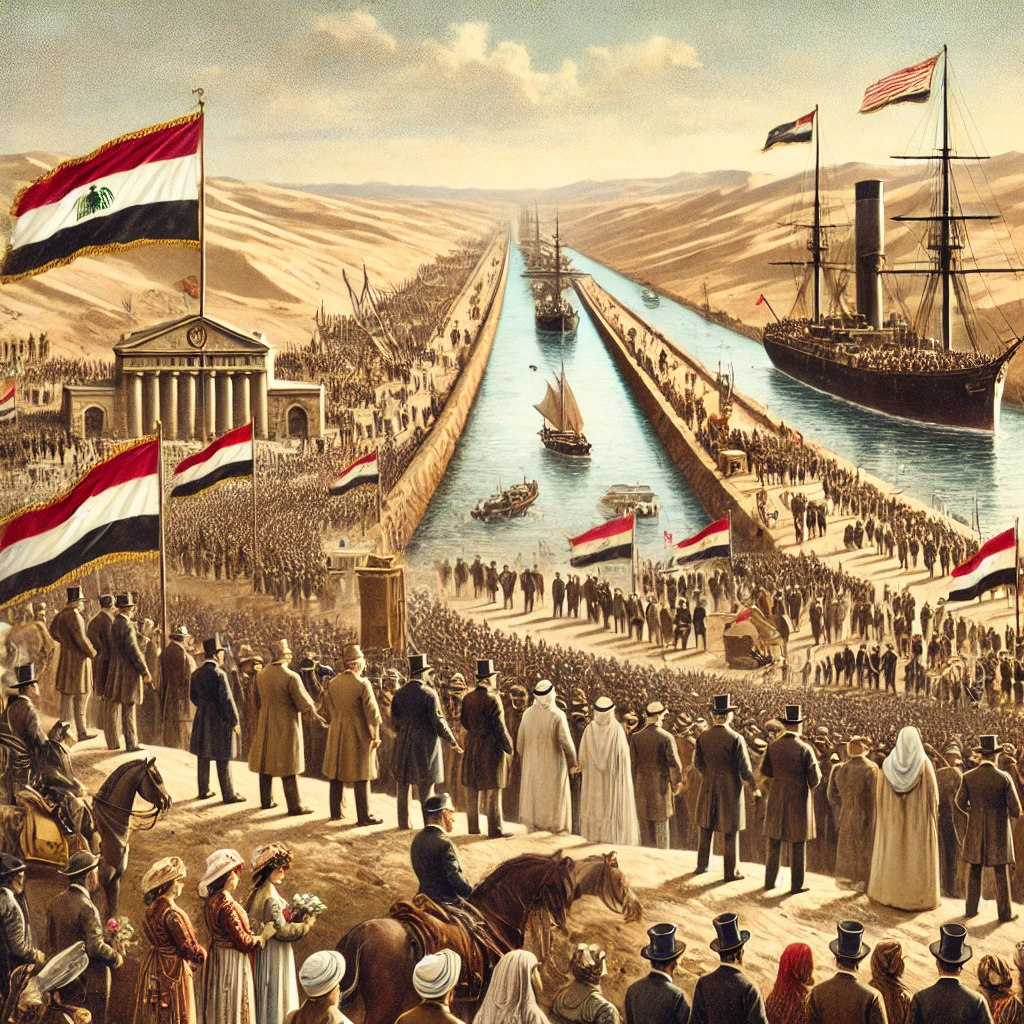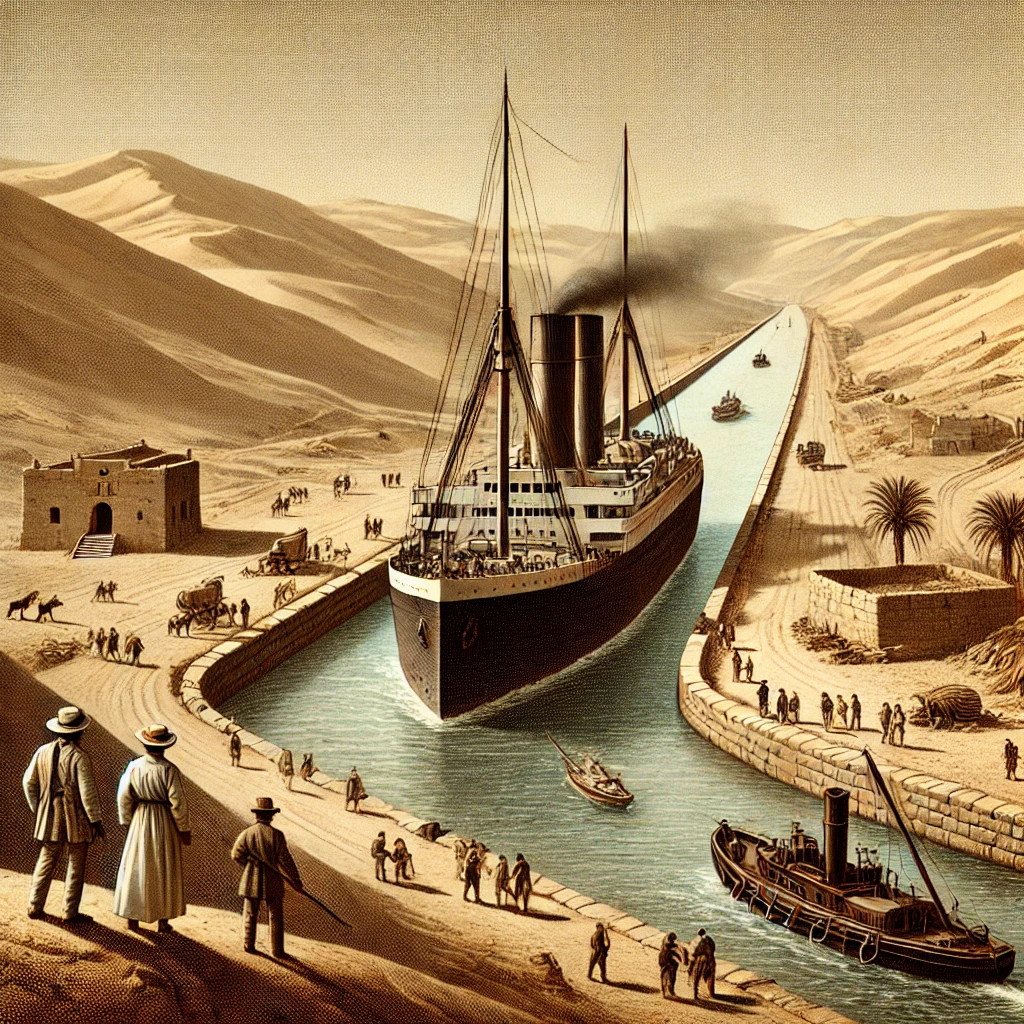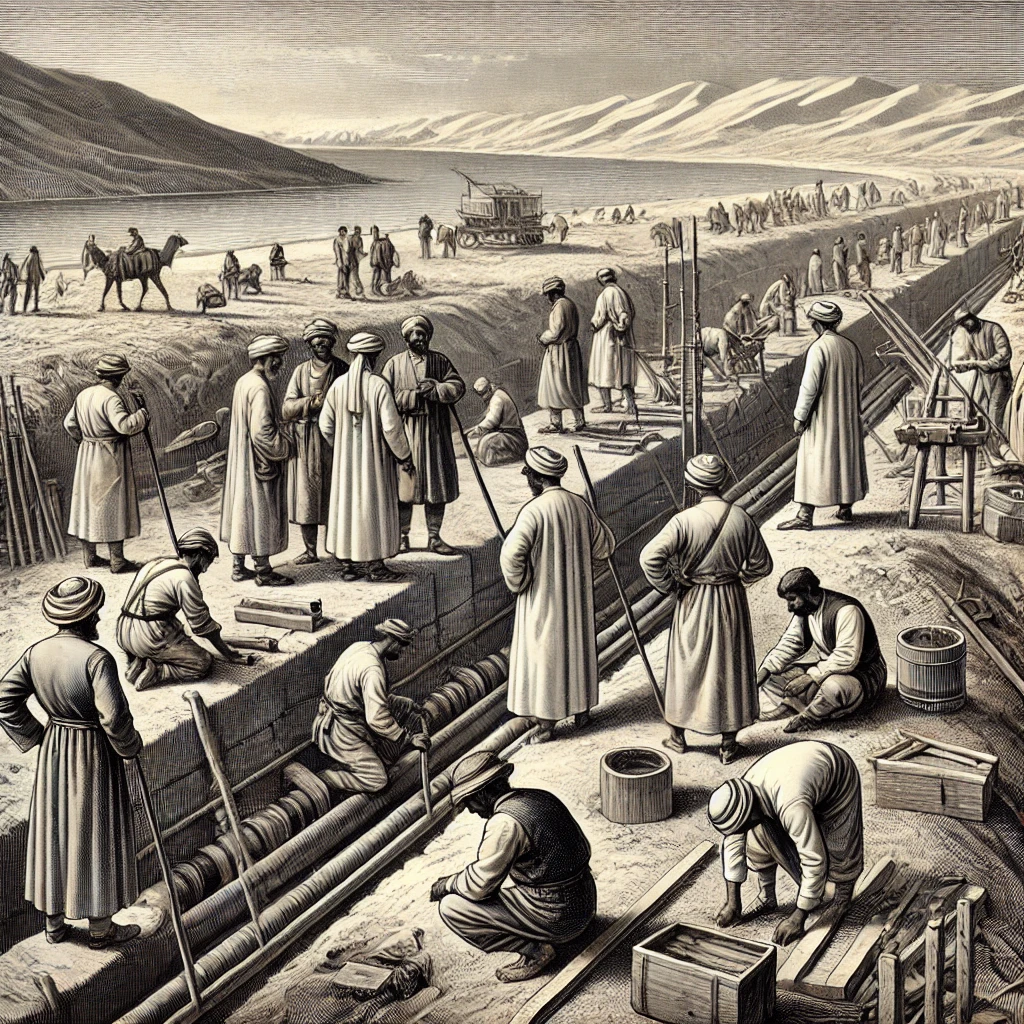On November 17, 1869, the Suez Canal, an engineering marvel that forever changed the course of global trade, was officially opened to ships. Stretching 120 miles, the canal links the Mediterranean Sea to the Red Sea, allowing ships to bypass the lengthy and perilous journey around the southern tip of Africa. Built over a decade and involving thousands of laborers, the Suez Canal was the vision of French diplomat and engineer Ferdinand de Lesseps. Its construction was marked by challenges, including financial obstacles and the technical complexities of carving through the Egyptian desert, but the canal’s completion marked a turning point in maritime history.

A Gateway to Global Trade and Economic Growth
The opening of the Suez Canal was more than a triumph of engineering—it was a monumental moment in economic history. By offering a shortcut between Europe and Asia, the canal significantly reduced the travel time for ships. This made it easier and faster for European nations to reach markets in Asia, and vice versa, fueling a boom in trade. With the Suez Canal, the distance between, for example, London and Bombay, was cut by over 4,000 miles, saving months in shipping time and drastically reducing transportation costs. The canal quickly became a crucial artery for the transport of oil, cotton, spices, and countless other goods, shaping the economies of nations along the trade routes it enabled.
The Canal’s Political Impact and Strategic Importance
Beyond its economic significance, the Suez Canal played a crucial role in the geopolitics of the 19th and 20th centuries. Its strategic position made it an asset that was highly sought after by global powers. British control over Egypt in the late 19th century led to effective British control over the canal, heightening tensions with other European nations. By the mid-20th century, the Suez Canal had become a focal point in the Cold War as well. The 1956 Suez Crisis—when Egypt’s President Gamal Abdel Nasser nationalized the canal—sparked an international incident involving Egypt, Israel, Britain, and France. The canal’s position as a vital transit route meant that control over it translated into significant political leverage on the world stage.

Lasting Impact: The Suez Canal Today
The Suez Canal remains one of the world’s most important waterways. Today, it facilitates the transit of around 12% of global trade. The canal’s impact on global shipping and the economies of countries that depend on it has not diminished over time. The canal has been periodically expanded to accommodate larger ships, most recently in 2015 with the inauguration of a parallel channel that allows for two-way traffic. These improvements have helped increase the canal’s capacity and adaptability to modern shipping needs, reinforcing its place as a cornerstone of global commerce.
Environmental and Social Challenges Surrounding the Suez Canal
While the Suez Canal has brought undeniable economic and strategic benefits, it has also introduced significant environmental and social challenges. The canal’s creation connected two previously separate marine ecosystems—the Mediterranean and Red Seas—allowing for the migration of species between them. This has led to ecological disruptions, with invasive species entering and altering local ecosystems in both seas, often to the detriment of native species. The canal’s role as a major shipping route also means it’s vulnerable to incidents that can have substantial environmental impacts, as seen during the Ever Given blockage in 2021, when a stranded cargo ship halted trade and highlighted the environmental risks of such bottlenecks. These challenges underscore the need for sustainable management of this historic waterway, balancing its benefits to global trade with measures to protect the ecosystems and communities around it.
The Suez Canal’s Legacy

The Suez Canal’s official opening in 1869 marked the beginning of a new era in maritime navigation and global trade. Its economic benefits, strategic importance, and impact on international relations have made it one of the most significant engineering achievements of the modern era. As a result, the canal remains a vital piece of global infrastructure, indispensable to the economies and industries that rely on it. The Suez Canal exemplifies how human ingenuity and determination can reshape the world, not just for a single nation, but for generations to come.
